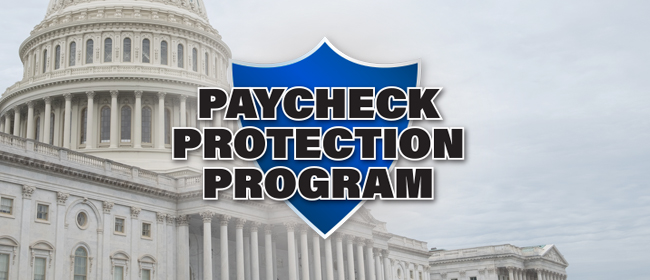The SBA issued an interim final rule providing guidance on the Paycheck Protection Program Flexibility Act (the "Flexibility Act") which became law last week. The interim final rule clarified several important aspects of the Flexibility Act, but also left open interpretive issues that will need to be resolved in future guidance and rule-making. Here is our take:
LOAN FORGIVENESS
The plain language of the Flexibility Act appeared to impose a threshold for receiving loan forgiveness by requiring that borrowers would only be eligible for loan forgiveness if at least 60% of the loan amount was used on payroll costs. The SBA has now clarified that the intent of Congress was to provide a proportional limit on nonpayroll costs as a share of the borrower's loan forgiveness. Under the interim final rule, if a borrower uses less than 60% of the loan amount on payroll costs, a borrower may still receive partial forgiveness.
COVERED PERIOD
The interim final rule also makes conforming changes to reflect the Flexibility Act's extension of the covered period for use of the loan proceeds to the earlier of the following: (i) 24 weeks from the date the loan was originated and (ii) December 31, 2020. Previously, the covered period was for eight weeks following loan origination. For loans made prior to June 5, 2020, borrowers may elect to use the eight week covered period under the original provisions of the CARES Act. However, the interim final rule does not address whether borrowers electing to use the eight-week period may also elect to use June 30, 2020 (as opposed to December 31, 2020) as the date for determination of whether the rehire and compensation safe harbors apply. Additional guidance will be needed to understand how the safe harbors will be implemented under the Flexibility Act.
LOAN DEFERRAL
The interim final rule also gives guidance on the Flexibility Act's changes to the deferral period for PPP loans. For borrowers who submit a loan forgiveness application within ten months after the end of the covered period (discussed above), no payment of principal or interest is due until the SBA provides the forgiveness amount to the lender or informs the lender that the borrower is not eligible for forgiveness. Payments of principal and interest will begin at the end of the 10-month period for borrowers who do not submit a loan forgiveness application within the 10 months following the covered period. It remains unclear whether the SBA will accept loan forgiveness applications after the expiration of the 10-month period.
More important, this new 10-month deferral period will likely have a negative impact on banks making PPP loans that expected payments in 2020, since borrowers will have little incentive to apply for loan forgiveness before the end of the 10-month period. The example provided in the interim final rule illustrates that for loans disbursed in June 2020, the borrower is not required to make payments until October 2021. This will significantly increase the time lenders will carry these low interest-bearing assets on their books without receiving any principal and interest payments.
Since the extended deferral period provision is retroactive, it applies to loans made prior to June 5, 2020, which under the initial CARES Act had a six month deferral period. Most lenders used PPP loan notes that expressly included the original six month deferral period. Without further guidance from the SBA, these notes may have to be amended to reflect the new retroactive 10-month deferral period.
MATURITY
The Flexibility Act provided that loans have a term of a minimum of five years. The interim final rule clarifies that loans made on or after June 5, 2020 will have a maturity date of five years. Loans are deemed "made" when the SBA assigns a loan number to the loan. Loans made prior to June 5, 2020 mature after two years. However, borrowers and lenders may mutually agree to extend the maturity date to five years.
BORROWER CERTIFICATIONS
The interim final rule also requires that borrowers make a certification that the funds will be used for the following: "to retain workers and maintain payroll or make mortgage interest payments, lease payments, and utility payments" and to acknowledge that "if the funds are knowingly used for unauthorized purposes, the Federal Government may hold the borrower legally liable such as for charges of fraud."
The SBA also released revised applications to reflect these changes. These documents are available for download here.
Bowles Rice continues to closely monitor federal, state and local developments related to the novel coronavirus pandemic. Be sure to visit the CARES Act / COVID-19 Response Team page on our website for a comprehensive listing of available services.
For more information:
If you have questions about the Paycheck Protection Program Flexibility Act or would like more information, please contact one of the following Bowles Rice attorneys:
|

